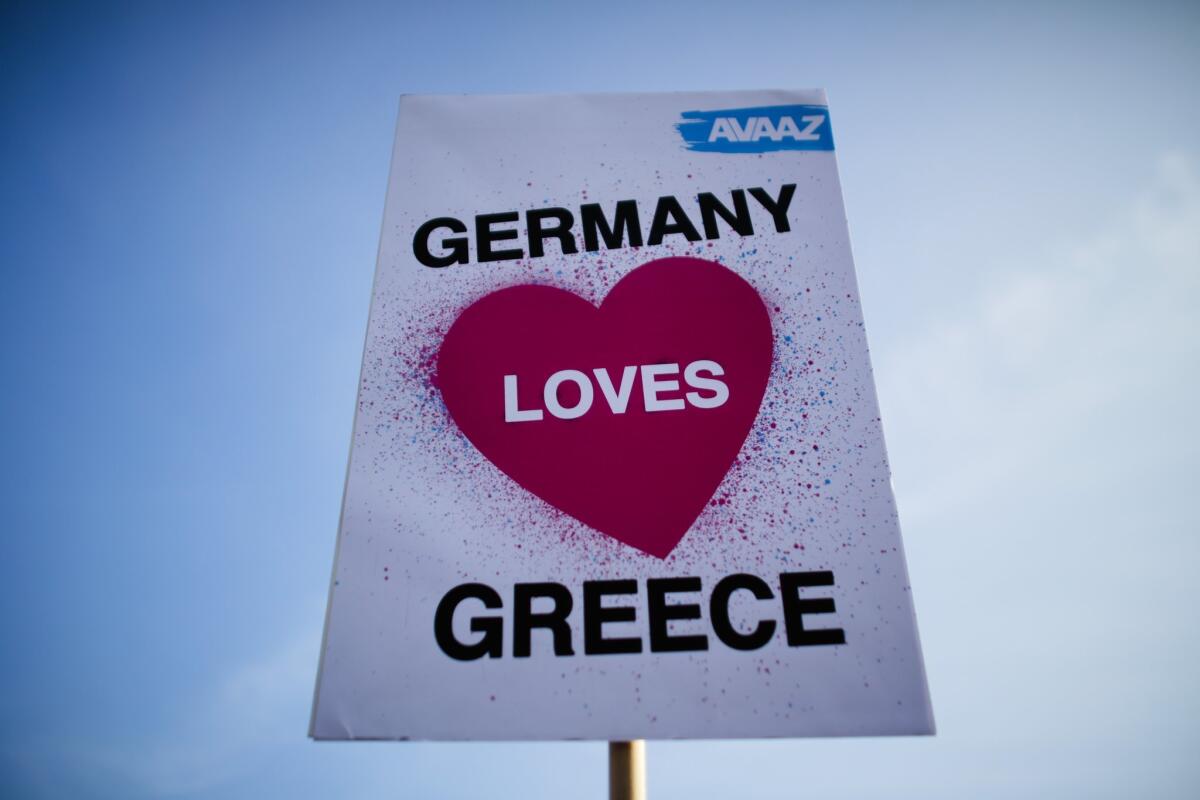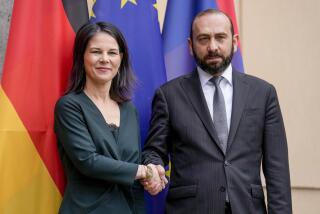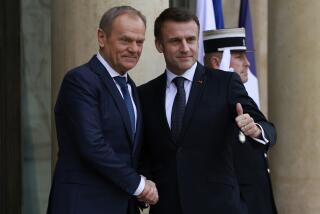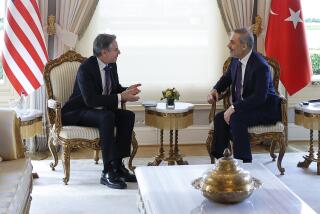Greek premier has ‘fruitful exchange’ with Germany’s Merkel

Monday editions of the bestselling German tabloid Bild neatly summed up the complicated relationship being played out in talks between Greek Prime Minister Alexis Tsipras and German Chancellor Angela Merkel.
As Tsipras arrived in Germany, Bild blared greetings in Greek, and offered an article listing “50 reasons why the Greeks are dear to us.” Among them: olive oil, yogurt, the ancient mathematician Archemides and the modern singer Nana Mouskouri.
Still, unable to resist a jibe, the newspaper, which has been critical of Greece throughout its debt crisis, proffered the Greek leader tips on thriftiness. “Look Mr. Tsipras, this is how to save money,” the headline declared.
Merkel was not as blunt.
With relations soured by bad blood over Athens’ debt woes, World War II reparation claims and lesser frictions, both leaders – meeting to discuss details of reform plans aimed at keeping Greece afloat -- agreed to stop slugging it out.
“This meeting is the first stage in a new relationship between Greece and Germany,” Tsipras said. “We had a fruitful exchange that determined both common ground and differences between us. And that’s fine, because if we do not determine those differences, we will not be able to bridge them.
Top among them, the Greek leader said, was removing stereotypes that portray Greeks as lazy and Germans as the source of Greece’s debt woes.
“We want to see Greece grow strong,” said Merkel. “We can work together, but we can also disagree.”
The upbeat remarks and breezy body language marked a stark contrast to the furrowed brows and verbal sniping traded between Greek and German ministers in recent weeks, sinking relations to record lows.
Even so, it remained unclear whether the two leaders managed to narrow major differences on economic reforms.
“If they don’t,” warned Kostantinos Filis, director of the Athens-based Institute of International Relations, “this bloodletting could see toxic repercussions.”
Ahead of the talks, German officials had scrambled to downplay the drama in the Greek leader’s first official visit to Berlin since the left-wing, anti-austerity Syriza party surged to power in late January.
More than 1,100 miles south, in Athens, fears of a showdown gripped Greeks.
A cartoon in To Vima, the most revered newspaper here, pictured a sweating Tsipras in jeans pumping an old-fashioned railway handcar up a hill -- with Merkel at the top, timing him. Television networks followed every step of Tsipras’ trip, portraying the leader’s visit as a daring foray into a lion’s den of fury and popular resentment over Athens’ newfound refusal to accept any more of Germany’s bitter prescription of austerity.
Monday’s meeting, the second get-together in five days, followed promises by the Greek leader to tweak a list of reforms in order to unlock a first tranche of about $2 billion that Athens needs to make debt repayments by the end of the month. The alternative could be eviction from the Eurozone.
Carefully dodging any comment, Merkel merely insisted that Athens stick to its commitments.
Although German officials were saying that Merkel would avoid discussing the reforms with Tsipras, German politicians -- and taxpayers funding Athens’ rescue -- were demanding that she press the issue, and that the Greek leader reciprocate.
“It would be good if Tsipras can convince the chancellor… that he grasps the seriousness of the situation,” said Markus Soeder, Bavaria’s conservative state finance minister. “So far, Greece has promised and not delivered.”
Tsipras, 40, and a former Communist party youth leader, has already warned Merkel that it would be impossible for cash-strapped Greece to service its debt obligations without a fresh injection of rescue aid. Failure to secure that, he wrote in a veiled threat to the head of Europe’s powerhouse economy, would force him to choose between paying off loans or pension and wage payments --- both precursors to a chaotic default.
Merkel, who lived through the uncontrolled collapse of communism in East Germany 25 years ago, has repeatedly said her political goal is to keep the euro area secure. But indicative of growing German frustration over Greece, a recent opinion poll showed that more than 50% of Germans surveyed preferred to let Europe’s weakest financial member leave the 19-member euro currency club.
Renewed calls by Athens for Merkel’s coalition to pay reparations to victims of Nazi war crimes, and threats to unleash a wave of migrants, including Islamic State militants, to the heart of Europe if Greece is left to go broke, have added to voter impatience in Germany.
But on Monday, Tsipras put seemed determined to bridge that rift in relations, denying any designs by Athens to confiscate German assets in payback of reparations. He even leapt to Merkel’s defense, saying caricatures depicting her as a Nazi officer outside the Acropolis were “wrong and unjust.”
“Today’s democratic Germany has nothing to do with the Germany of the Third Reich that took such a toll of blood,” he said.
With the two leaders set to work through the night, pundits and politicians on both sides ruled out a major political breakthrough.
“But by rebooting trust and confidence, tensions can calm down,” Filis said. “This isn’t just about economics,” he added.
Indeed, with the prospect of Greece turning into a loose cannon within the European Union and NATO, aggravating Washington’s ability to deal with geopolitical challenges in nearby Russia and Syria, U.S officials, including President Obama, have waded into the Eurozone crisis, urging Berlin to seek a compromise solution with Greece.
Tsipras has vowed to honor promises to submit a fresh draft of reforms to overhaul the Greek economy “as soon as possible.”Although no specific date has been set, Eurozone officials have said they could discuss aid payments at an emergency meeting as early as March 27. Officials in Athens were aiming for March 29.
How soon that happens, pundits and politicians predict, depends on how big a compromise Tsipras is prepared to make with Merkel, and whether he can sell that deal to hard-left backbenchers, already threatening a revolt.
“We are very near the moment where things could get out of control,” said noted writer and analyst Nikos Dimou. “An accident… [even] a sudden run on bank could happen. Humpty Dumpty may fall off the wall.”
Carassava is a special correspondent.
More to Read
Start your day right
Sign up for Essential California for news, features and recommendations from the L.A. Times and beyond in your inbox six days a week.
You may occasionally receive promotional content from the Los Angeles Times.






